- ‘Lies, damned lies etc…’ - 13th February 2026
- Missing in action - 12th February 2026
- Travel news again - 11th February 2026
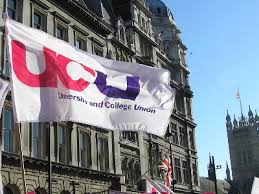
A hard-hitting union complaint about a controversial Welsh university, describes how members have been forced to endure “bullying and intimidation tactics”, The Eye can exclusively reveal.
The furious circular from the University and College Union (UCU) about headline-grabbing University of South Wales (USW), reports how it is “the most draconian and worst example of the adopted practices in Wales”.

It adds ironically:“Our caring and highly responsible management at USW have added another punishment in that normal self-certification procedures for staff reporting sick leave are suspended when staff are engaged in MAB (Marking and Assessment Boycott) or action short of a strike. This action which is an attempt to unilaterally change our terms and conditions of employment, shows total disregard for the health and wellbeing of academic staff and could be discriminatory toward any staff with recurring medical conditions and disabilities.

“Finally, just in case that’s not enough any request for any annual leave made after 20th April will be subject to review…The view of UCU Wales is that the USW stands out as the most draconian and worst example of the adopted practices in Wales. This has been reported by UCU to the Senedd at a lobby 9th May.”

However this is not the first time that USW has made the news for all the wrong reasons.
In an internal email from four years ago, USW insisted that pupils predicted to secure certain A-levels were to receive automatic offers. The email stated: “Any students with predicted grades of BBC or above will automatically receive an unconditional offer. Those below will be offered conditional places if found to be suitable”.
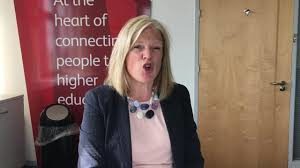
But this flew in the face of key events. In March of the previous year Clare Marchant, the head of the Universities and Colleges Admissions Service (UCAS), said the higher education sector needed to have an “open and honest” debate about unconditional offers after figures showed a 40 per cent rise in them the year before, and that this was a “concern”.

In 2017, more than 50,000 students were offered unconditional places, raising fears universities were using the practice to secure student fees of thousands of pounds, to the detriment of some pupils. In one year it was reported that the number of students receiving unconditional offers for university places had leapt, and the news prompted calls for an overhaul of the UK’s convoluted and unreliable university admissions process.
UCAS figures from several years ago, showed that nearly one in four 18-year-olds applying from England, Wales and Northern Ireland had received an unconditional offer – meaning they could accept an undergraduate place without meeting the A-level or BTech grades predicted by their teachers.

According to the statistics, 23 per cent of that year’s cohort had been made at least one unconditional offer. In 2016 the proportion was a little under 13 per cent, and in 2013 it was just 1 per cent – so the number of students benefiting had risen from 2,500 to 58,000.
Even the prediction of grades for school-leavers has come under fire. A study from the UCU said no other developed country uses such a system of forecasts of results for university admissions, and lecturers stressed that most predicted grades turned out to be incorrect. It has examined admissions systems from 30 major countries and found no others using the UK’s approach of pupils applying on the basis of grades predicted by their teachers.
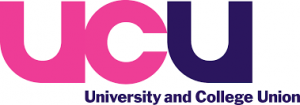
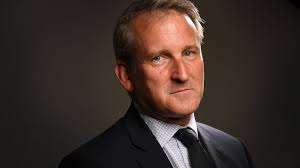
Head teachers have also backed calls for a change, with their organisation saying the current approach is “no longer fit for purpose”.
These highly-charged issues are set against a disturbing background, with universities accused of fuelling fears over grade inflation. Analysis by The Times showed that more than 2,000 students who had achieved three D grades or lower at A-level ended up being awarded a first-class degree at university. Forty universities awarded firsts to at least a quarter of those with the lowest A-level grades. Damian Hinds, the then UK Education Secretary, told universities that they must end the steep rise in “unjustifiable” first-class degrees, with the percentage of students getting them increasing from 16 to 27 per cent in six years. Data from the Higher Education Statistics Agency showed that out of 274,000 students graduating in 2017, 11,250 achieved three D grades or lower and 2,060 of those got a first.

USW is rivalled only in UCU’s eyes, by the crisis-hit Cardiff Metropolitan University’s (CMU), with a “60% proposed deduction”, and The Eye have long been alone in highlighting problems here
For example we have shown how a complainant made a legal request for information about whether a vote of confidence was held into the work of its head who has declared she is quitting, and CMU staff have admitted to us they are “too frightened to talk” publicly of their concerns. However senior officials have denied that any such vote had been held, and they completely backed their contentious Vice-Chancellor (VC) Cara Aitchison. The complainant who asked the question under Freedom of Information Act (FOIA) legislation, was told: “The Board of Governors continues to have full confidence in the Vice Chancellor and her effective leadership of the University”.
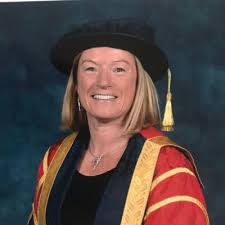
Yet plainly this ‘full confidence’ has NOT led Professor Aitchison to want to stay at CMU, because she is quitting, and in announcing her departure, she blamed the strain on her family life, and admitted that her institution was a “work in progress”.
In the hours after she declared that she was going, a spoof resignation message circulated among staff which in a wickedly humorous way purported to offer other reasons for the ‘successes’ she had trumpeted in her announcement.
It said: “The brave decision to make over 200 redundancies and then rehire the same amount was a master stroke. Ok, I spent over £8,000,000 on redundancy payments and a small fortune on forced confidentiality agreements but that was money well spent. To be clear, the long-standing strategic vacancies in Estates, Marketing, Business Engagement, Library & Information Services, University Secretary and International are no reflection of my leadership or the reputation of CMU within the academic community. Any suggestion that I have been responsible for multiple grievances is entirely false. Entirely. The growth in student numbers and corresponding university turnover has been down to me alone. It has had absolutely nothing to with the astounding natural growth in 18 year old applicants or the sector wide growth in Indian and African student numbers.”

The anonymous spoof communication came after a source had told The Eye that there was a “list of The Disappeared”, and a “culture of fear”. The whistleblower at CMU proclaimed: “There’s a…mystery Deputy Vice-Chancellor that never was, (on the list are) John Cavani and Lisa Newberry (both working in Marketing), Leigh Robinson (Pro Vice Chancellor) Sharon Johnstone and Leila Gouran (International), Paul Robinson (Estates), Christine Fraser (University Secretary) and her PA Angela Jones-Evans. All people that had to work close(ly with) the VC (Vice-Chancellor) (who are) suddenly no longer around”.

One of the officials on the alleged list (John Cavani) has an intriguing past which was highlighted by our journalists.
Mr Cavani was a “Senior Marketing & Communications Professional” at CMU, and said in a recent social media announcement that he had “decided to move on”, but before he did so, he had attempted to use his Public Relations (PR) skills on The Eye’s Editor Phil Parry by trying to persuade him to report ‘positive’ stories about the university. Mr Cavani also failed to respond to a gmail marked “urgent” asking for information, even though he claims to be a specialist in communications.
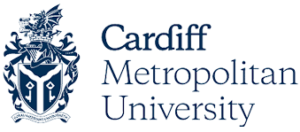
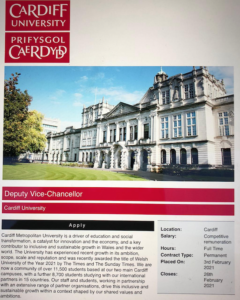 An incorrect advert was published, as well, with her at the helm. It invited applications for a Deputy Vice-Chancellor (DVC) for CMU, but explained that it was for Cardiff University (CU)-using THAT institution’s logo and photograph instead!
An incorrect advert was published, as well, with her at the helm. It invited applications for a Deputy Vice-Chancellor (DVC) for CMU, but explained that it was for Cardiff University (CU)-using THAT institution’s logo and photograph instead!
Documents also painted an alarming picture of what has been happening inside CMU. Along with publishing the wrong advert for a new senior staff member, CMU has acknowledged it needs to do more in allowing internal critics to speak out (presumably including our anonymous contacts). Minutes of a “SPECIAL MEETING OF THE BOARD OF GOVERNORS” given to The Eye, from March 11 one year stated clearly that the university sought to “explicitly strengthen the University’s commitment to freedom of speech and academic freedom”. This then became official policy at CMU, with the proclamation: “The Board Resolved. 1) To approve the proposed Code of Practice on Freedom of Speech”.

Following a meeting of the Vice-Chancellor Executive Group (VCEG), unhappy staff were sent recruitment rules that every appointment panel had to be chaired by a member of the group or a Dean of another school at the university.
Yet another whistleblower at CMU, said this was just further evidence of “more controlling and lack of trust”. One source added that it had become crazy at the institution once more, saying: “It’s starting to go mad again”. The contact told The Eye earlier: “I can’t wait for the REF (Research Excellence Framework) results … Research across the university is at an all time low”.

A staff survey of Health and Wellbeing was carried out after we revealed it had been postponed, but the timing had been questioned by staff who claimed it was conducted following our disclosures. One told us: “(The) Eye must have hit a nerve as the VC tells us that ‘one priority is to address any concerns raised by staff in the Staff Health and Wellbeing Survey conducted last month’”.
As with our questions to another controversial Welsh higher education institution, officials at CMU have stated that the queries to them from Phil were “vexatious”, although it was clear that all was not as it should be within CMU. We were given details of alleged “bullying”, and a different staff member got into trouble for “not eating a sandwich within the designated lunch hour” when officials from Human Resources were allegedly called in.

Even as the scandal at CMU has been kept from the mainstream media, The Eye have been inundated with desperate comments from distressed academics, and one said they are “demoralised and demotivated”.
A contact told us earlier: “Staffing levels are completely inadequate. Sickness levels and grievances are through the roof across the university.” Another of our sources within the Welsh university sector said: “They are rearranging the deckchairs on the Titanic”. A different unhappy academic told us the university was in “turmoil” and in a state of “carnage”.

These are words that might be included in further union complaints, when our journalists have already told how the latest one, describes members at a Welsh university being forced to endure “bullying and intimidation tactics”…
The memories of Phil’s astonishing decades-long award-winning career in journalism (during which he has reported numerous controversies in academia) as he was gripped by the rare disabling condition Hereditary Spastic Paraplegia (HSP), have been released in a major book ‘A GOOD STORY’. Order it now!

Regrettably publication of another book, however, was refused, because it was to have included names.









